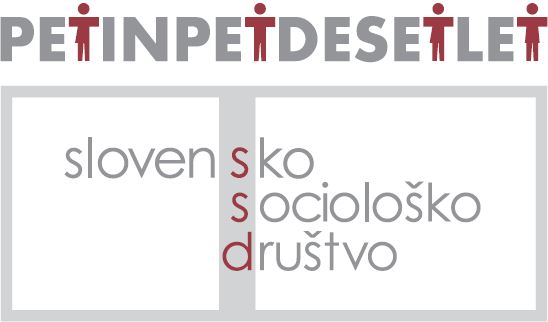Social Science Forum 77 (XXX)
The crumbling or strengthening of social capital? The economic crisis’ impact on social networks and interpersonal trust in Slovenia
Hajdeja Iglič
ABSTRACT: The economic crisis is bringing uncertainty, change, worries and distress into the everyday lives of people, which has an effect on the level and form of social capital. The literature offers two opposing arguments regarding the impact of shocks and material uncertainty on social capital. The first one emphasises the instrumental nature of interpersonal relations and claims that the increased need for mutual help and support that arises during crisis periods strengthens social networks. In contrast, the second argument brings forward the problem of a social networks overload, which threatens to break them up during crises. More importantly, interpersonal dependence can lead to the closing off of social responsibility and solidarity into narrow family networks, thus reducing social capital among social groups and in society in general. In this paper, we empirically confront these two arguments in the context of the econo- mic crisis of 2008 in Slovenia. We compare the characteristics of social networks and interpersonal trust before the crisis with those measured several years after it began.
KEY WORDS: social capital, social networks, trust, economic crisis, welfare state
>> Download
Local communities and community care in the area of mental health: The perspectives of administrative entities, providers and users
Vesna Zupančič, Doroteja Kuhar, Majda Pahor
ABSTRACT: he contribution highlights the local community’s role in community care development in the area of mental health as seen by three participating groups: municipal officials (local community/administrative entity officials), providers within the network of mental health programmes and services, and users of these services. A cross-sectional case study was carried out in the Novo mesto health region using a combination of quantitative and qualitative methods aimed at evaluating the current state of care and establishing whether differences are present in the understanding of local communities’ role in community mental health care development. the findings of the study indicate opportunities for improving community care processes.
KEY WORDS: mental health, community care, local community/administrative entity, community care providers, community care users
>> Download
Inequality between old people in Western society as the subject of social gerontology
Katarina Štebe
ABSTRACT: The purpose of the article is to give an overview of the theoretical development in social gerontology. In the interdisciplinary field of different paradigms, the most recent bring to the fore the heterogeneity of ageing and therefore the issues of solidarity and social inequality. through our analysis of established explanations of the social aspects of ageing we expose the role of the theoretical perspectives developed in sociology for understanding the diversity of old age and the experiences of it. the main focus is on questions of social inequality in the modern welfare state, which in recent times has been responding to the challenges of an ageing population with a policy of active (productive) ageing. In seeking to answer these questions at the macro level, the most recent critical gerontology exposes the fact that the diversity of old people is tied to issues of social justice. In a field that sees itself as an advocate for old people in ageing post industrial societies, this critical strand is accumulating knowledge that helps empower this social group and supports even marginal social groups in these
populations in achieving a quality life in old age
KEY WORDS: comulative development of theory, social aspects of ageing, social inequality, modern welfare state, successful ageing, quality of life in old age
>> Download
Between queer theories, queer politics and gay and lesbian movements
Nina Perger
ABSTRACT: The purpose of this paper is to analyse queer politics and their theoretical framework along with queer theories, and to compare them to the identity politics of gay and lesbian movements. Queer politics and queer theories are critical of the exclusionary logic of identity politics since the latter only include those subjects who meet the criteria for specific – gay and lesbian – identity categories, which serve as a basis for political representation in which non-normative subjects are excluded. Queer subjects are opposed to these exclusive identity categories and concepts of (hetero- and homo-) normativity by positioning themselves outside of identity binarisms in the field of gender and sexuality – in the case of queer disidentity queer politics and struggles are established on the basis of common interests, not identities. Queer politics andqueer theories thus offer legitimate criticism of gay and lesbian movements
KEY WORDS: queer theories, queer politics, queer disidentity, gay and lesbian movements
